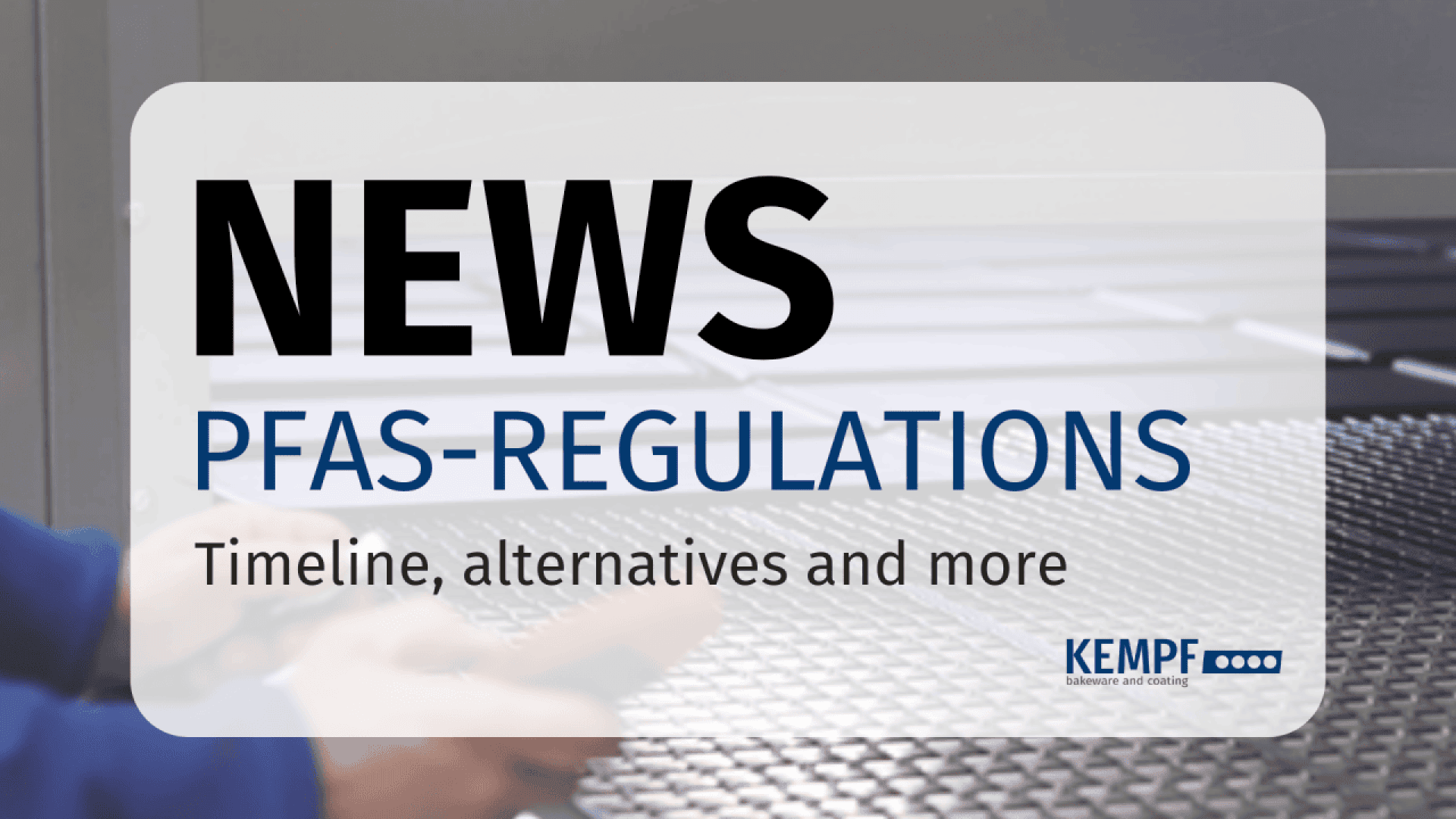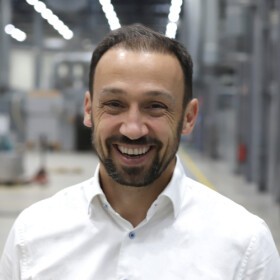Current Status of PFAS Regulation
Since 2023, the topic of PFAS and the associated regulatory developments have come into sharp focus across the industry. How has the situation evolved since then?
Since 2023, the topic of PFAS and the associated regulatory developments have come into sharp focus across the industry. As a pioneer in the field of non-stick coatings, Kempf already presented its first PFAS-free solutions at IBA 2023 in Munich.
How has the situation evolved since then?
What technological progress has been made?
And what is the current state of European legislation?
What is PFAS?
PFAS (per- and polyfluoroalkyl substances) refer to a group of over 10,000 synthetic chemicals that are widely used in everyday products due to their water-, grease-, and dirt-repellent properties – including cookware (e.g. Teflon), outdoor clothing, cosmetics and food packaging.
What are the advantages of PFAS-based non-stick coatings such as Teflon (PTFE – polytetrafluoroethylene)?
- Excellent Non-Stick Properties
- Food hardly sticks, reducing or eliminating the need for oil or fat
- Easy cleaning with minimal scrubbing
- High Heat Resistance
- PTFE typically withstands temperatures up to 260 °C, and in special cases even up to 300 °C, without damage or loss of properties
- Even heat distribution for consistent baking results
- Durability
- Chemically resistant and corrosion-proof
- Highly resistant to scratches and abrasion
Why is a ban on PFAS-containing products under discussion?
Due to their extreme persistence, PFAS degrade very slowly in the environment and can accumulate in soil, water and living organisms. Some PFAS compounds are suspected to pose health risks. The fluoropolymers used in our non-stick coatings belong to the group of “polymeric PFAS.” For this type of PFAS, limited data is currently available regarding toxicity. While they are long-lasting, they are generally not considered bioaccumulative.
What is the current legal situation in the EU?
In November, the RAC and SEAC committees of the ECHA discussed PFAS use in materials with food contact. Many other sectors still await review.
According to current planning, PFAS restrictions in the European Union are expected to take effect in the second half of 2028 or the first half of 2029. This will be followed by a transition period of 18 months (until 2030). Under applicable exemptions, PFAS-containing products may continue to be used for an additional five to twelve years, provided that active efforts are made to find suitable alternatives. This would allow permitted use until approximately 2035 or even 2042, depending on the application.
What PFAS-free alternatives are available?
For many years, we have been supplying baking trays and molds with proven PFAS-free coatings. In addition, we are continuously working to expand our product range in order to offer you high-performance, future-ready alternatives.
Would you like to learn more about our PFAS-free solutions? We look forward to meeting you in person at our booth E40 in Hall 11.

